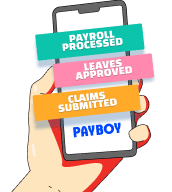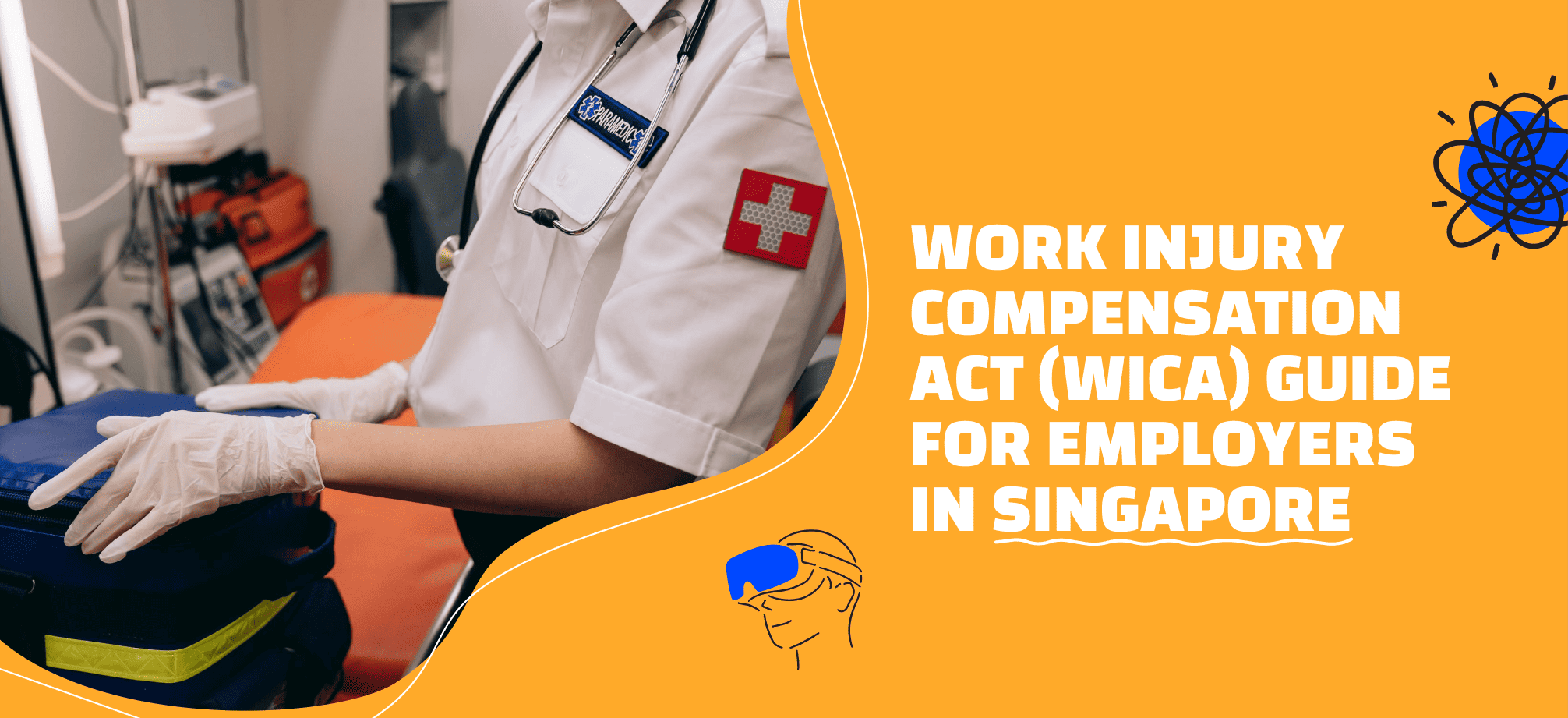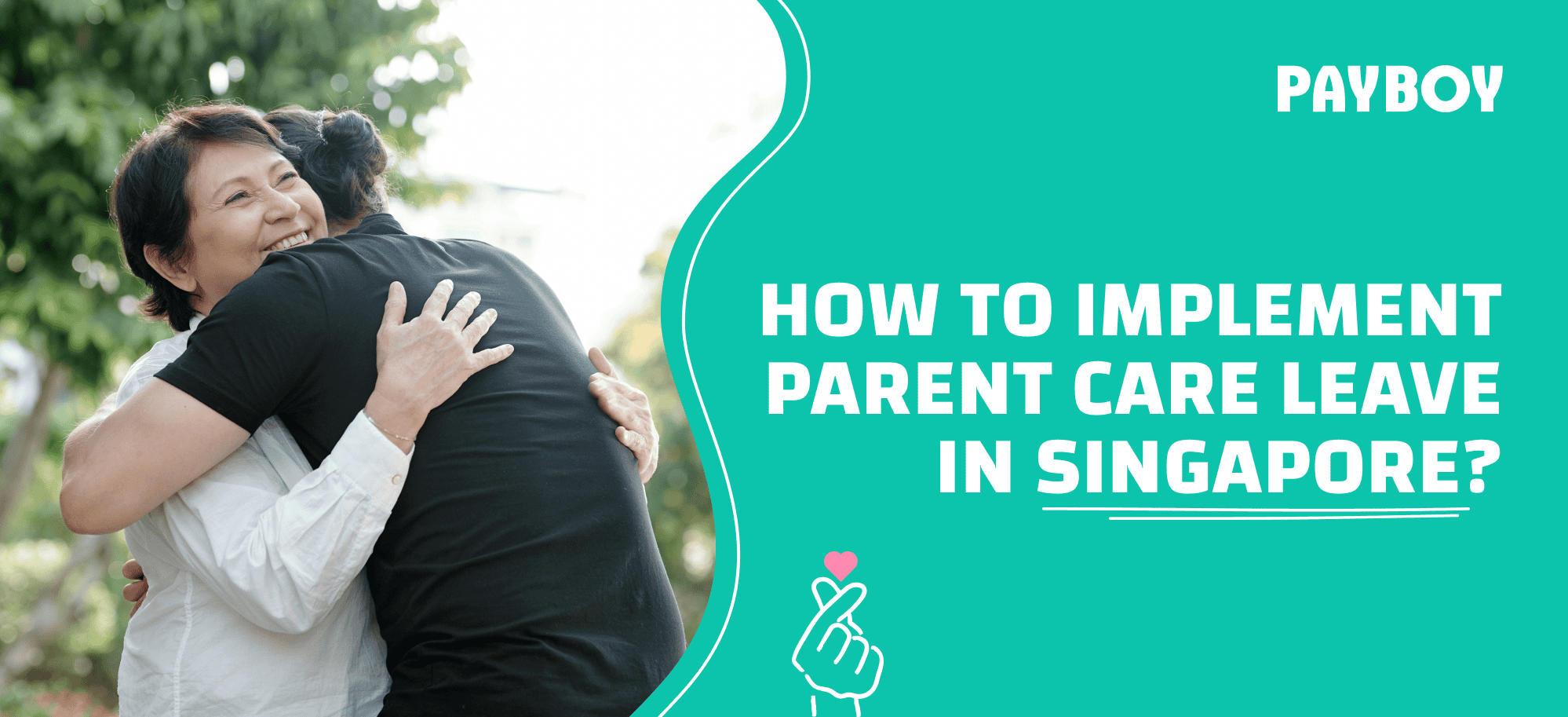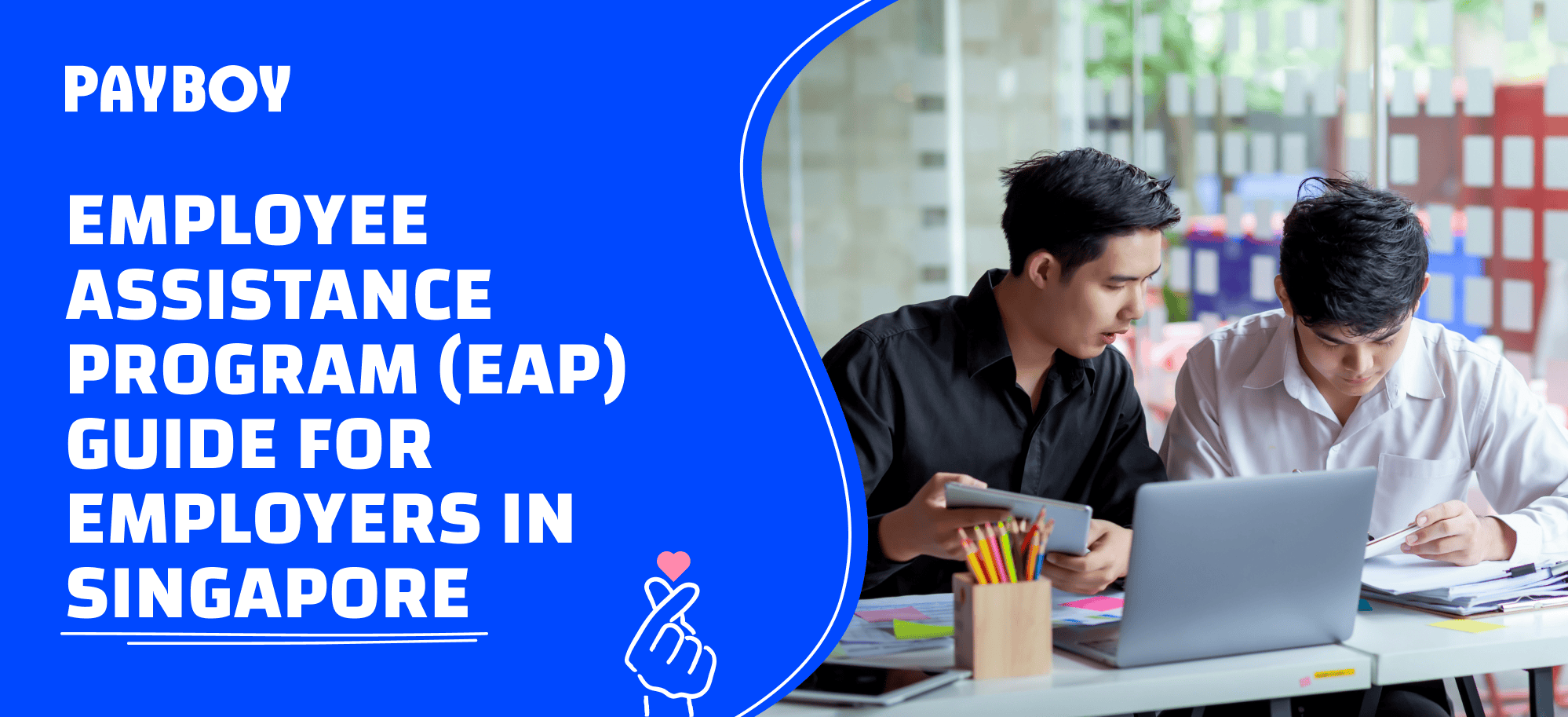Workplace safety and employee welfare are of paramount importance in any society. To ensure the well-being of workers in Singapore, the government has implemented the Work Injury Compensation Act (WICA) to provide a framework for compensating employees who suffer injuries, illnesses, or deaths due to work-related incidents. In this blog post, we will delve into the key aspects of WICA, including its scope, coverage, claimable benefits, and the responsibilities of employers. Let’s get started!
What is the Work Injury Compensation Act (WICA)?
The Work Injury Compensation Act (WICA) is a legislative framework in Singapore that safeguards the interests of employees who sustain work-related injuries, diseases, or fatalities. It ensures that workers receive timely compensation for their injuries or losses, regardless of fault or negligence.
The WICA provides a no-fault compensation system, which means that employees are entitled to compensation regardless of who is responsible for the accident. By eliminating the need to establish fault, the Act expedites the claims process and ensures that injured workers receive their rightful compensation promptly.
Who is covered under WICA?
The WICA provides coverage for a wide range of employees in Singapore. The Act applies to all employees engaged under a contract of service, including full-time, part-time, and temporary workers. It also extends to foreign employees, casual labourers, and apprentices, as long as they are working under a contract of service.
However, it is important to note that the WICA does not cover self-employed individuals, independent contractors, domestic workers, or uniformed personnel such as members of the Singapore Armed Forces.
What can be claimed under WICA?
Under WICA, employees can claim various types of compensation benefits, depending on the severity and nature of their work-related injuries or illnesses. These benefits include:
- Medical expenses: The WICA covers all reasonable medical expenses incurred for the treatment of work-related injuries or diseases. This includes costs related to hospitalisation, surgeries, medications, and rehabilitative services.
- Medical leave wages: If an employee is temporarily unable to work due to work-related injuries or illnesses, they are entitled to medical leave wages. The compensation amount is typically a percentage of the employee's average monthly earnings.
- Lump-sum compensation for permanent incapacity: In case an employee suffers permanent incapacity due to a work-related injury or illness, they can claim a lump-sum compensation. The amount is determined based on the extent of the disability and the employee's average monthly earnings.
- Compensation for death: In the unfortunate event of a work-related fatality, the WICA provides compensation to the dependents of the deceased employee. This includes a lump-sum payment and a monthly payment for a fixed duration.
What are the claim limits for each type of compensation benefit?
The WICA sets certain claim limits for each type of compensation benefit to ensure a fair and balanced system. The claim limits are periodically reviewed and adjusted to account for inflation and changes in the cost of living. The current claim limits (as of September 2020) are as follows:
- Medical expenses: The maximum claim is S$45,000 and the expense is claimable only if the treatment is prescribed and billed by a Singapore-registered doctor or dentist.
- Medical leave wages: The maximum limit for medical leave wages is 60 days of wages per year.
- Lump-sum compensation for permanent incapacity: The maximum limit for lump-sum compensation is S$289,000. This amount is subject to adjustment based on the employee's average monthly earnings and the degree of permanent incapacity.
- Compensation for death: The lump-sum compensation for death is capped at S$225,000.
It is essential to consult the latest information on claim limits, as they may change over time. You can refer to the Ministry of Manpower’s official website for the most up-to-date details.
Is it compulsory for employers to get work injury compensation insurance for their employees?
As an employer, it is compulsory to buy work injury compensation insurance from a designated insurer by MOM for:
- All local and foreign employees doing manual work, regardless of salary level.
- All local and foreign employees doing non-manual work, earning a salary of S$2,600 or less a month, excluding any overtime payment, bonus payment, annual wage supplement, productivity incentive payment and any allowance.
Failure to provide adequate work injury compensation insurance for the above employees is considered an offence. Employers who do not comply with the legal requirement may face penalties, including a fine of up to S$10,000, imprisonment for up to 12 months, or both.
For other employees, employers have the flexibility to decide whether to purchase work injury compensation insurance for them. However, it is crucial to note that if these employees experience a valid work-related injury and make a compensation claim, employers will still be liable to provide compensation, irrespective of whether they are insured.
What should an employer do during a work injury claim?
During a work injury claim, employers play a crucial role in ensuring the well-being and support of their employees. Here are the key points that employers should consider and act upon:
- Provide immediate assistance
When an employee sustains a work-related injury, it is vital for the employer to provide immediate assistance. Ensure that the injured employee receives prompt medical attention and necessary first aid on-site, or arrange for immediate transportation to a medical facility if required. Prioritise the well-being of the injured employee by promptly addressing their immediate medical needs.
- Report the incident to the Ministry of Manpower (MOM)
It is essential for employers to report the work injury incident to the Ministry of Manpower (MOM) as soon as possible. The incident report should be submitted within 10 days from the date of the accident. Providing accurate and timely information to MOM allows them to assess the situation and provide necessary guidance.
- Inform the insurer about the incident
Employers should promptly inform their insurer about the work injury incident. This enables the insurer to initiate the claims process and provide the necessary support to the injured employee. Timely communication with the insurer helps facilitate a smooth claims process and ensures that the injured employee receives the required compensation and benefits.
- Pay the employee's medical leave wages by the next payday
When an employee is on medical leave due to a work-related injury, the employer is responsible for paying the employee's medical leave wages. Once the employer receives the original Medical Certificates (MCs) from the employee, the payment should be made by the next payday. This ensures that the injured employee does not face financial difficulties during their recovery period.
Tip: Head over to our guide “Sick & hospitalisation leave in Singapore - What every employer must know” to learn more about how you can track and manage your employee’s medical leave as they recover from their work injury!
- Pay the medical expenses directly to the hospital or clinic
Employers should take responsibility for paying the medical expenses directly to the hospital or clinic where the injured employees receive treatment. Promptly settling the medical bills not only relieves the financial burden on the employees but also demonstrates employers’ commitment to supporting their recovery process.
- Send and pay for the medical report to the hospital or clinic
Obtaining a comprehensive medical report is essential for the work injury claim process. Employers should send the injured employee for a medical examination and bear the cost of the medical report. This report provides valuable information about the extent of the injury, the required treatment, and the employee's prognosis, which serves as crucial documentation for the work injury claim and facilitates a fair compensation assessment.
By adhering to these key points, employers can fulfil their obligations and demonstrate their commitment to the well-being and support of their employees, while ensuring a smooth and fair work injury claim process.
What are the penalties if an employer fails to pay compensation for work injury claims?
Failure to pay compensation is an offence punishable by a fine of up to S$15,000, jail time of up to 12 months, or both.
Prioritise workplace safety by understanding your responsibilities as an employer under WICA
The Work Injury Compensation Act plays a vital role in protecting the rights and welfare of workers in Singapore, ensuring that employees receive timely and fair compensation for their work-related injuries or illnesses. Employers must understand their responsibilities under WICA and fulfil their obligations to support and compensate injured employees. By adhering to the guidelines outlined in this blog post, employers can contribute to a workplace culture that values the well-being of their workers and prioritises workplace safety.
Simplify medical and hospitalisation leave tracking with Payboy’s leave management module!
Small and medium-sized enterprises (SMEs) often find leave management to be a pain point, and we can understand why:
- SMEs don’t have as many HR resources as larger businesses. As a result, they often have to rely on manual leave processes, which can be both time-consuming and error-prone.
- SMEs often have a more limited pool of employees to choose from when someone goes on leave. This can lead to disruptions in workflow and decreased productivity.
If leave isn't managed properly, it can have a negative impact on productivity and morale. Therefore, good HR software is an essential tool for any business that wants to stay on top of its leave entitlements and ensure its employees are getting the rest they deserve. Here are some benefits of using our leave management module:
Manage leaves digitally
Our leave management module is designed to streamline the leave management process, making it easy for employees to apply for leave and check leave balances, as well as for employers to approve and manage leave requests.
Employees can also easily submit supporting documents or certificates via the mobile app, so that all the documents are stored in a central database. No more missing documents!
Sync seamlessly with Shift Scheduling and Payroll Processing modules
Shift scheduling and payroll calculation can be time-consuming and stressful while managing different leave types and requests. With Payboy HR software, when leaves are approved, the employee’s availability will be automatically updated in the Shift Scheduling module, and any encashed or unpaid leave will be calculated in the Payroll Processing module.
Customise the leave policy that best fits your business needs
We'll provide you with a MOM-compliant setup to start with, but we are also ready to assist you in customising your leave policy to fit your business requirements. Check out how to customise settings for each leave type with Payboy.
Here’s a useful guide on how to create sick leaves for outpatient and hospitalisation leaves on Payboy!
Our Payboy Support Centre also helps to address most of the FAQs regarding other statutory leave entitlements asked by our customers:
Streamline your HR processes with Payboy today!
As a PSG-approved HRMS, Payboy provides a robust system to help you manage your HR tasks so that you can focus on your business and people!
With our wide range of modules, you can customise a solution to meet the specific needs of your business:
Payroll Processing | Leave Management | Claims Management | Applicant Tracking
Time Attendance | Shift Scheduling | Appraisal System | Inventory ManagementProject Costing | Training Management | Benefits






















